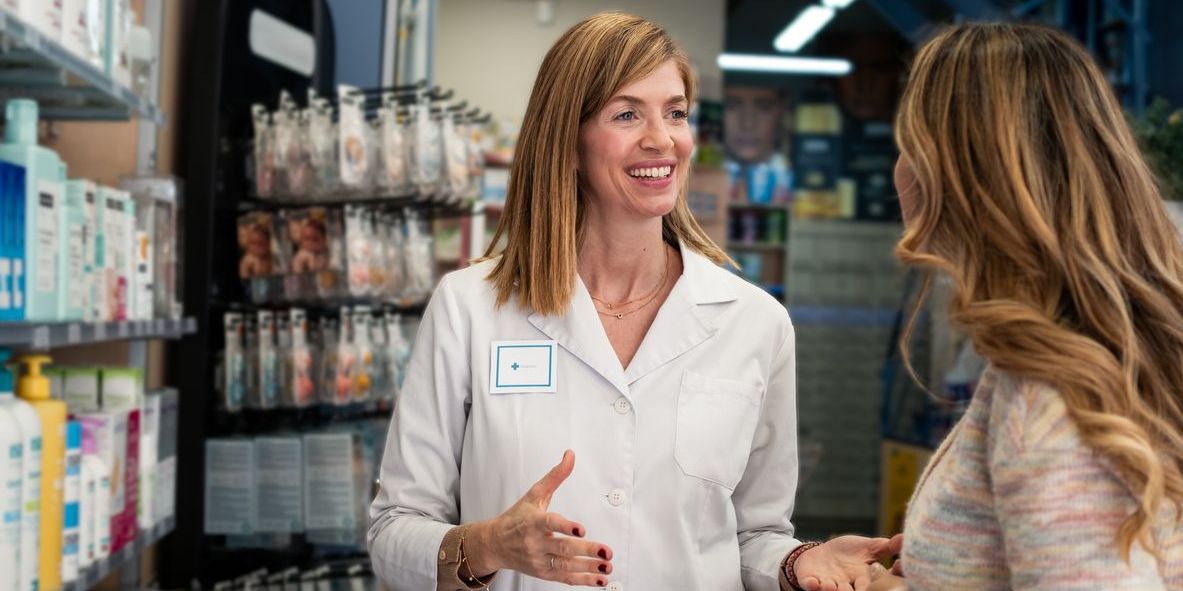What is a Community Pharmacist?
A community pharmacist usually works in places like your local drugstore, a pharmacy inside a grocery store, or an independent pharmacy. They're often the most accessible healthcare professionals around, making them an important connection between people and the healthcare system. Community pharmacists play a big role in helping with everyday health needs, from preventing illness to managing ongoing conditions—especially in smaller towns or areas with limited access to doctors.
What does a Community Pharmacist do?

Duties and Responsibilities
Community pharmacists do much more than fill prescriptions—they help ensure safe and effective use of medications while supporting overall health in the community. Here are some of their key duties and responsibilities:
- Dispensing Medications: They accurately prepare and provide prescription medications, checking for potential drug interactions or allergies to ensure patient safety.
- Patient Counseling: Pharmacists explain how to take medications properly, discuss possible side effects, and answer any questions patients may have about their prescriptions.
- Providing Vaccinations: Many community pharmacists are trained to administer vaccines, such as flu shots or travel immunizations, making them easily accessible for patients.
- Health Screenings and Monitoring: They may offer services like blood pressure checks, diabetes monitoring, or cholesterol testing to help patients manage chronic conditions.
- Medication Management: Pharmacists assist patients with organizing and understanding complex medication regimens, especially for those taking multiple prescriptions.
- Advising on Over-the-Counter Products: They help customers choose the right non-prescription treatments for minor illnesses or health concerns.
- Collaborating with Healthcare Providers: Pharmacists often communicate with doctors and other healthcare professionals to clarify prescriptions, recommend alternatives, or coordinate patient care.
Different Types of Community Pharmacists
Various roles within community pharmacy practice are based on work setting, specialization, or scope of services. Here are some distinctions:
- Independent Community Pharmacists work in privately owned or family-run pharmacies. They often have more autonomy in business decisions and personalized patient care, and build close relationships with the local community.
- Retail Pharmacists are employed by large pharmacy chains. They follow corporate protocols, handle high prescription volumes, and often work alongside standardized health service offerings like vaccinations and screenings.
- Clinical Community Pharmacists focus on medication therapy management (MTM) and chronic disease management. They may work in collaboration with primary care providers, providing more in-depth patient counseling and health monitoring.
- Consultant Pharmacists (in Community Settings) offer specialized services such as home medication reviews, especially for elderly or chronically ill patients. They may work across multiple community pharmacies or visit patients at home or in care facilities.
In addition to these primary roles, community pharmacists may develop further expertise in specific aspects of pharmaceutical care to better support patients and expand their role beyond traditional dispensing:
- Diabetes Education and Management – counseling on blood glucose monitoring, insulin use, diet, and lifestyle
- Immunization and Travel Health – specializing in administering vaccines and offering advice for travel-related medications and precautions
- Geriatric Pharmacy – focusing on the complex medication needs of older adults, including polypharmacy and age-related issues
- Mental Health and Addiction Services – providing support for managing medications related to mental health, substance use disorders, or smoking cessation
- Cardiovascular Risk Management – helping to monitor and manage conditions like hypertension, hyperlipidemia, and heart disease; sometimes conducting blood pressure or cholesterol screenings
- Pediatric Pharmacy – specializing in dosing, formulations, and counseling specific to children and adolescents
- Women’s Health and Hormonal Therapy – providing guidance on contraception, hormone replacement therapy, and reproductive health
It’s important to note that a single community pharmacist can perform multiple roles and develop various specializations depending on their training, location, and the needs of their community.
Community pharmacists have distinct personalities. Think you might match up? Take the free career test to find out if community pharmacist is one of your top career matches. Take the free test now Learn more about the career test
What is the workplace of a Community Pharmacist like?
Community pharmacists can work for a variety of organizations within the retail and healthcare sectors. These are among their most common employers:
- Chain Pharmacies and Drugstores – large retail pharmacy chains like CVS, Walgreens, Rite Aid, Shoppers Drug Mart, Boots, and others operating in multiple locations
- Independent Pharmacies – privately owned or family-run pharmacies serving specific local communities
- Supermarkets and Grocery Stores – large grocery chains with in-store pharmacies (e.g., Walmart, Kroger, Loblaws, Tesco)
- Mass Merchandisers and Big-Box Retailers – stores like Costco, Target, and Sam’s Club
- Online and Mail-Order Pharmacies – e-pharmacy companies (e.g., Amazon Pharmacy, PillPack, Capsule) which hire community pharmacists for prescription verification, virtual counseling, and medication management
- Government and Public Health Organizations – community health centers, Indigenous health services, or public health outreach programs providing medication access and education
- Long-Term Care and Assisted Living Facilities – working with or supply medications to residential care homes, particularly through pharmacy service providers
A community pharmacist usually works in a clean, well-organized, and busy setting—like a local drugstore or supermarket pharmacy. Most of the time, they’re on their feet behind the prescription counter, surrounded by shelves of medications and computers used to process prescriptions and check patient records. There’s often a special, secure area for handling medications that require extra care, and many pharmacies now have private rooms where pharmacists can give vaccines or talk with patients about their health in a more personal setting.
It’s a job that blends medical knowledge with strong people skills. Pharmacists are often the first person someone turns to with a health question, so being helpful, careful, and friendly is a big part of the work. Accuracy and patient safety are always top priorities, along with creating a supportive and approachable environment for everyone who walks in.
Frequently Asked Questions
Pharmacy-Related Careers and Degrees
Community Pharmacists are also known as:
Drugstore Pharmacist
Local Pharmacist
Retail Pharmacist